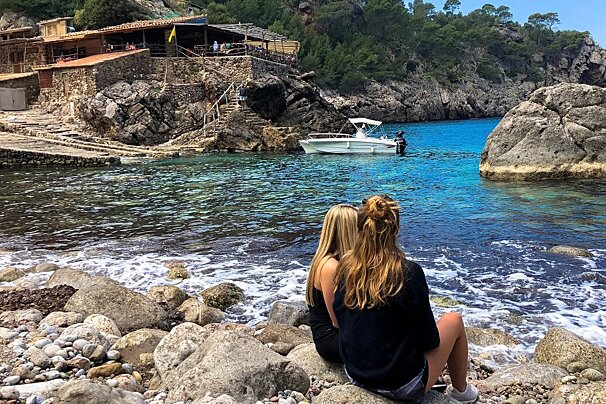New reform on the Tenancy Act in Mallorca
How does the new reform on property rentals affect you?
On June 4th 2013 a new law that amended the Tenancy Act in Spain came into effect. Will Besga at ETL Mallorca is here to explain the new law and how it affects your rights as a landlord in Mallorca.
The New Reform Of The Tenancy Act And Short Term Rentals In Mallorca And The Balearic Islancs
Last time I wrote about this topic, I explained that there were two types of short-term rentals that you could engage in: touristic and ordinary. The touristic rental can only be done with a license and, as you may recall, you can only get one for detached houses and semis and now certain townhouses. This left apartments and other types of properties out of the touristic regulation. Did it leave the flat owners with no possibility to rent their properties out? No: the bottom line was that you still could engage in renting them out through the ‘Ley de Arrendamientos Urbanos, 1994’ or LAU (Spanish Tenancy Act, 1994), by not offering services and having a suitable contract that avoids misunderstandings about the type of rental that is being made. Likewise, those landlords who had detached houses and semis, and who did not want to rent their houses out touristically, could use the Tenancy Act, renting out their properties for short terms, without a license and, therefore, without providing any sort of services.
On June 4th, a new law that modifies the Tenancy Act or LAU is in place. It is a general, Spanish wide law, and therefore it is of application in all of Spain, overarching regional legislation. Let’s see first what the amendment has been in regard to short-term rentals.
The Tenancy Act had a number of properties that were never regulated by it: military barracks, university houses etc. The new law has added another type of property that now falls out its coverage: ‘the temporal use of a furnished property, equipped for its immediate use, commercialised through touristic channels, when it is subjected to a specific, sectorial legislation’.
On first reading, one of the obvious conclusions is that there is now a growing magma of legislation, with the effect of blurring situations and creating confusion, which, in a climate of recession, is just about the worst thing a government can do. Yet what, if anything, do these few sentences in the new law change?
Well, the other obvious conclusion is that ‘certain’ rentals will now depend on a given region’s touristic legislation, if there is any in a given region. So in the regions that have no such legislation (eg, Madrid), this law doesn’t change anything. Yet what happens in the regions where, such as the Balearics, there are touristic laws and regulations in place?
It is difficult to say with exactitude, as the section is very ill defined and it will take jurisprudence to establish exactly what is it that the MPs sitting in Madrid actually meant. But, in spite of it being a brand new piece of legislation, we can still extract is most likely meaning. I will give you the bottom line, and then I will explain myself: in the Balearic Islands, this new law should not really change things. In other words, non-touristic, ordinary short term rentals should continue to be not an issue, if done properly. That is: the short-term rentals of apartments and other housing for which licenses cannot be obtained will still be possible. I will give you the reasons for this almost obvious conclusion.
The new section we are discussing puts outside of the Tenancy Act temporal rentals IF they are subject to, or subordinated to, or depend on, a regional touristic legislation. And your rental is subject to the Balearic’s touristic legislation if you are conducting a touristic rental. So if you are not conducting a touristic rental -principally because you are not offering services- then you should be not subject to the regional touristic laws, and therefore your rental agreements can still be protected and still fall within the Tenancy Act.
Where does this leave us? Well, pending the application of the law by the authorities, you should still be able, just like before, to rent out, for short terms and through the Tenancy Act, those properties for which you cannot get licenses (apartments, terraced houses etc), if you are not engaging in the provision of services. Furthermore, and also just like before, in principle you can chose, if you have a detached or a semi detached house, whether you want to get a license for them and rent them out touristically, or whether you prefer not to offer any services and rent your property out non-touristically. Given, however, that the new law intends to subject touristic rentals to the regional touristic law, and the latter regulates detached houses and semis, I consider that if you have a detached or a semi, you should better get a license and offer services.
In sum: the new law seems to state the obvious, and it solidifies the practice that the Tourism Authorities in Mallorca and the other islands were already engaging in: if you are conducting a touristic rental, because you are renting it out through touristic channels and you are offering services, then your tenancy agreement depends on the regional tourism law. This, then, still leaves you the possibility of using the Tenancy Act for those types of housing where you cannot get a license and therefore are not, and cannot, be subject to the touristic laws.
|
SHORT TERM TOURISTIC RENTAL |
SHORT TERM ORDINARY RENTAL |
||||
|
SUBJECT TO: |
Balearics Tourism Act 2012 |
SUBJECT TO: |
Spanish Tenancy Act 1994 (LAU) |
||
|
TYPES OF PROPERTY |
ONLY: Detached Houses, Semi detached, certain townhouses |
TYPES OF PROPERTY |
Possibly all, but better stick with apartments, terraced houses etc. That is, everything but detached and semis. |
||
|
REQUIREMENTS |
To offer and provide services to guests, to charge VAT |
REQUIREMENTS |
|
||
|
LINCENSE? |
Yes, compulsory. |
LICENSE? |
No. |
The table shows the likely state of affairs after the publication of the law this week.

























